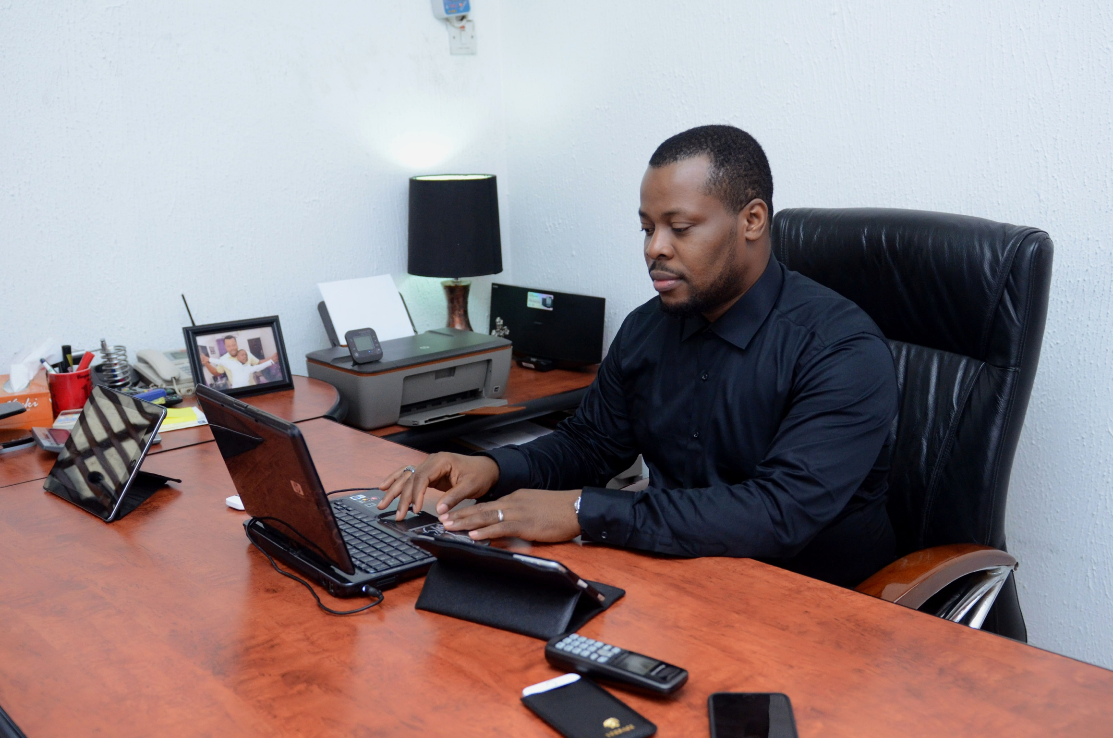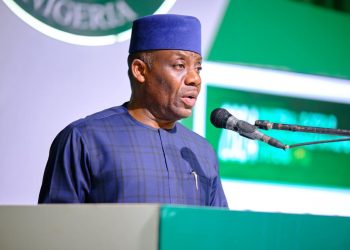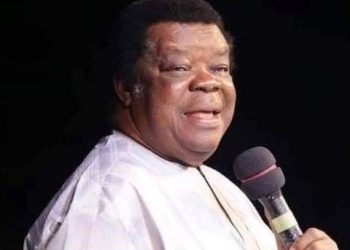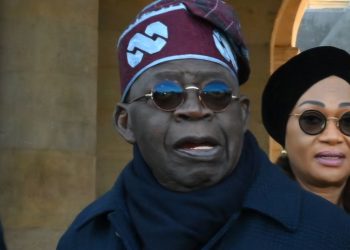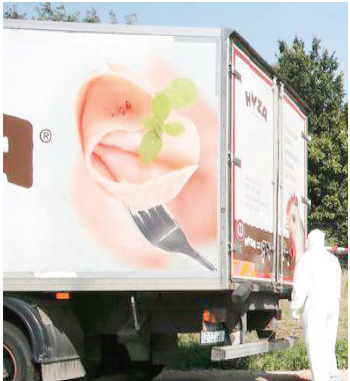The International Association of African Non- Governmental Organisations (NGOs) and its partner organization, the Omenka Foundation, will hold a two-day conference in New York City to discuss issues on how to reduce poverty and enthrone good governance across the world, especially in Africa.
According to a statement by Omenka Foundation, the event will coincide with the 70th Session of the United Nations General Assembly as well as the visit by His Holiness Pope Francis and the Summit for the Adoption of the Post 2015 Development Agenda.
It is anticipated that many world leaders and heads of international organizations will attend these events in advance of the normal General Debate that takes place each September.
The IAAN/Omenka event, entitled “First Ladies and NGOs forum on social accountability”, will be held at the ONE UN Hotel across the avenue from United Nations Headquarters on September 18 and 19, 2015.
This two day conference, “Social Accountability for Poverty reduction and Inclusive Prosperity” will draw many First Ladies from Africa, Latin America, and the Caribbean, NGOs/CSOs and officials from major international organizations including the World Bank, USAID and the United Nations along with its component units – UNDP, UNICEF and others.
In addition on September 19, 2015 a special forum, “Governors Forum on good governance” will take place as a closing event to the conference.
This session will feature Governors from Africa, as they discuss good governance initiatives and their effort in alleviating poverty in their home countries.
In addition each governor will share initiatives and road maps for impact and strategic investments, and public private partnerships in their various states.
Both sessions will feature lively Q and A, as well as ample time to network.
Some of the speakers at the event include Ambassador (Dr.) Robin Renee Sanders who will be Event Chair.
Ambassador Robin Sanders is a former U.S ambassador to Nigeria, ECOWAS, Republic of Congo and Director for Africa National Security Council at the White House; and currently CEO-FEEEDS Advocacy Initiative & FE3DS,LLC which work s on economic development, Africa diaspora, ICT, and business strategies for Africa.
He is also an Adjunct Professor at the Robert Morris University.
Prior to founding FEEEDS/FE3DS, she served as the U.S. Ambassador to several countries (Nigeria and Republic of Congo), U.S. Permanent Representative to the West African Regional Organization ECOWAS, and as Africa Director at the National Security Council at the White House.
As an academic while serving in the U.S. Diplomatic Service, Dr. Sanders was the International Affairs Advisor and Deputy Commander of the Eisenhower Resource College of the U.S. military’s premier National Defence University.
She holds a Doctorate of Science degree in Information Systems and Communications.
Another speaker will be former President of Malawi Joyce Banda, who is slated as the Honorary Chair & Awardee.
Banda was Malawi’s fourth president and its first female president. Before becoming president, she served as the country’s first female vice-president.
An educator and grassroots women’s rights activist, she was Minister of Foreign Affairs from 2006 to 2009 and Vice-President of Malawi from May 2009 to April 2012.
She was a Member of Parliament and Minister for Gender, Children’s Affairs and Community Services.
Before her active career in politics she was the founder of the Joyce Banda Foundation, founder of the National Association of Business Women (NABW), Young Women Leaders Network and the Hunger Project.
In 2014, Forbes named President Banda as the 40th most powerful woman in the world and the most powerful woman in Africa.
Others include Keith McLean, who is a Lead Social Development Specialist in the World Bank Institute’s Social Accountability Practice.
Keith coordinates the programs on Capacity Building of Civil Society Organizations for Social Accountability and Open Budgeting.
He also co-leads a Community of Practice on Fiscal Transparency, Participation, and Accountability.
Prior to this, Keith worked in the World Bank’s Europe and Central America region where he managed several operations and served as the Social Accountability focal point.
He has worked extensively on a number of areas including Community Driven Development, Decentralization, Rural Development, and Governance issues.
Roby Senderowitsch, who will also speak at the event, serves as the Program Manager of the Global Partnership for Social Accountability (GPSA).
Previously he served as Country Manager of the World Bank in the Dominican Republic.
His work in the Bank included a strong focus on political economy analysis, building coalitions for change, anti-corruption, and performance based management of public institutions.
Before joining the Bank, Roby worked with several NGOs in Argentina and Cuba, where he served as the Field Representative of the American Jewish Joint Distribution Committee.
He has been a lecturer in Human Resource management in non-profit organizations, as well as director of educational programs and community development and human resource management in the private sector.
Roby’s most recent publications include “Democratic Governance in Mexico: Beyond State Capture and Social Polarization” (with Yasuhiko Matsuda), “Performance Informed Budgeting and Trust in Government” (with Nick Manning and others), and “From the International Financial Crisis to Inclusive Growth in the Dominican Republic.”
Roby holds a Bachelor of Science in Education from the University of Buenos Aires and a series of postgraduate courses at Harvard and Stanford University.
Chris Stone is the president of the Open Society Foundations. He is an international expert on criminal justice reform and on the leadership and governance of non-profits.
Prior to joining Open Society, he was the Guggenheim Professor of the Practice of Criminal Justice at Harvard University’s John F. Kennedy School of Government and director of the Hauser Center for Non-profit Organizations.
Before that, Stone spent a decade as director of the Vera Institute of Justice.
He founded the Neighbourhood Defender Service of Harlem and served as a founding director of the New York State Capital Defender Office and of the Altus Global Alliance.
Stone received his BA from Harvard, an MPhil in criminology from the University of Cambridge, and his JD from Yale Law School. He was awarded an honorary Order of the British Empire for his contributions to criminal justice reform in the United Kingdom.
Susan Markham is the United States Agency for International Development (USAID) Senior Coordinator for Gender Equality and Women’s Empowerment.
In that role, she is working to improve the lives of citizens around the world by advancing equality between females and males, and empowering women and girls to participate fully in and benefit from the development of their societies.
USAID recognizes that promoting gender equality and female empowerment is fundamental to our mission to end extreme poverty and promote resilient, democratic societies while advancing our security and prosperity.
As Senior Coordinator for Gender Equality and Women’s Empowerment, Susan works with senior leadership and mission staff to fully integrate gender equality and female empowerment into USAID’s policies, programs, and strategies.
Another speaker will be Elaine Zuckerman of Gender Action. Gender Action represents Elaine Zuckerman’s life, work and passion to ensure social justice, and equal rights and opportunities for women and men.
Elaine joined the World Bank when she heard that China was becoming a borrowing member in 1980 and worked there as an economist on China. This preceded the advent of structural adjustment loans (SALs) and protests against the Bank.
Witnessing the unfolding of structural adjustment, in 1987 she created the Bank’s first program to globally mitigate SALs’ harmful impacts on the poor, especially on women.
Later she worked in the World Bank’s gender unit where she had an opportunity to analyze Bank investments around the world across sectors.
She was struck by the paucity of Bank operations that try to empower women despite Bank rhetoric and studies expressing the urgency to do so in order to reduce poverty.
In the 1990s at the Inter-American Development Bank (IADB), Elaine designed a strategy for the Amazon that prohibited future investments in roads and ranching that damaged indigenous groups and the environment, and instead promoted health, water, education and renewable resources.
She was also Coordinator of the IADB’s Social Agenda Policy Group which promoted equitable education and health financing for all men and women, girls and boys.

